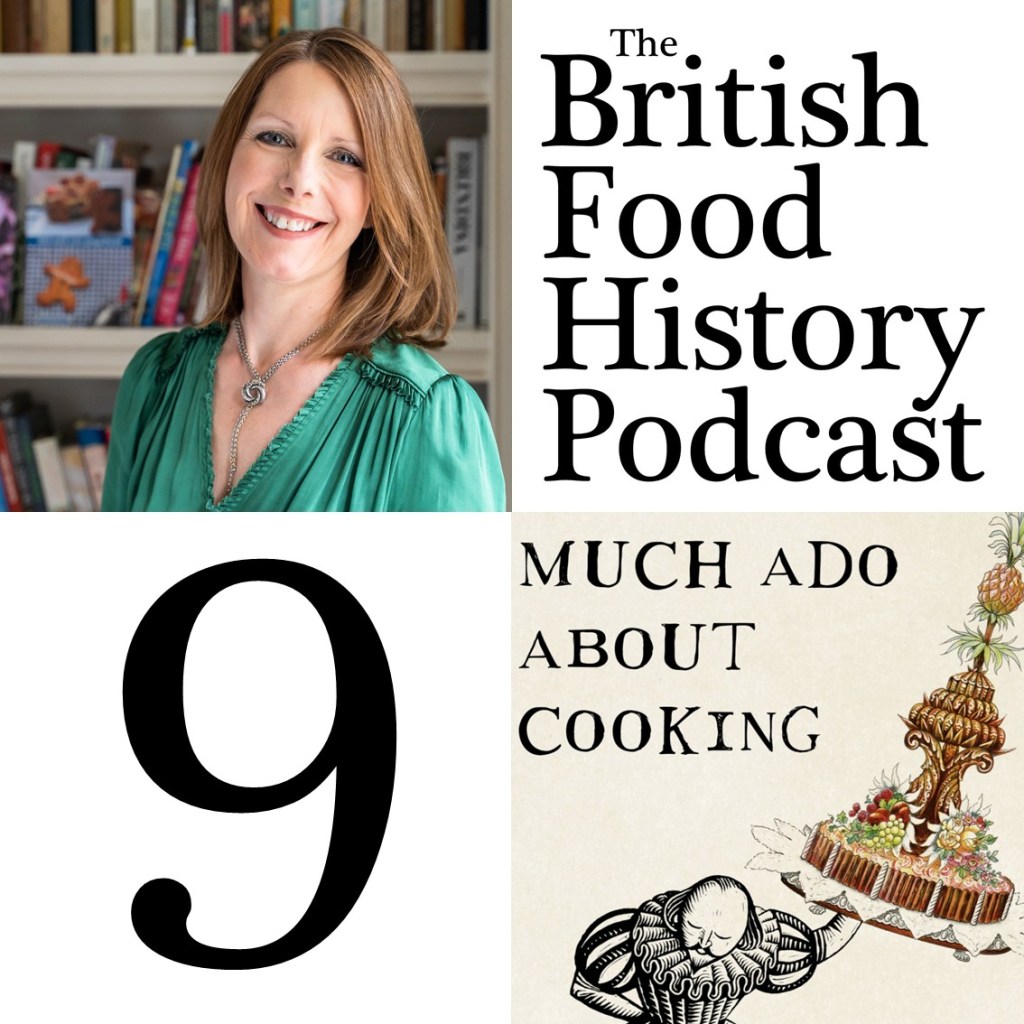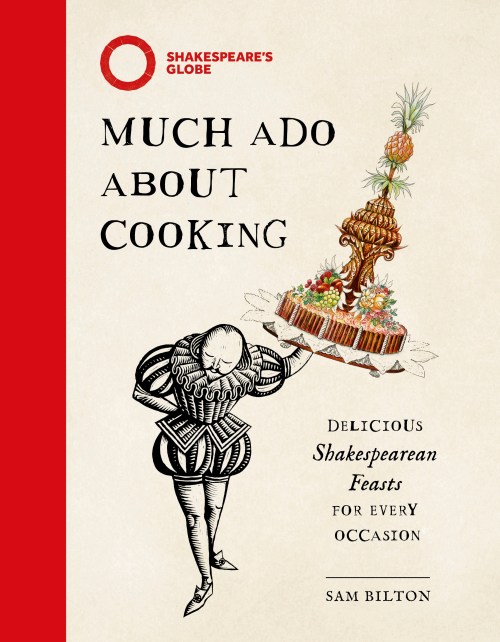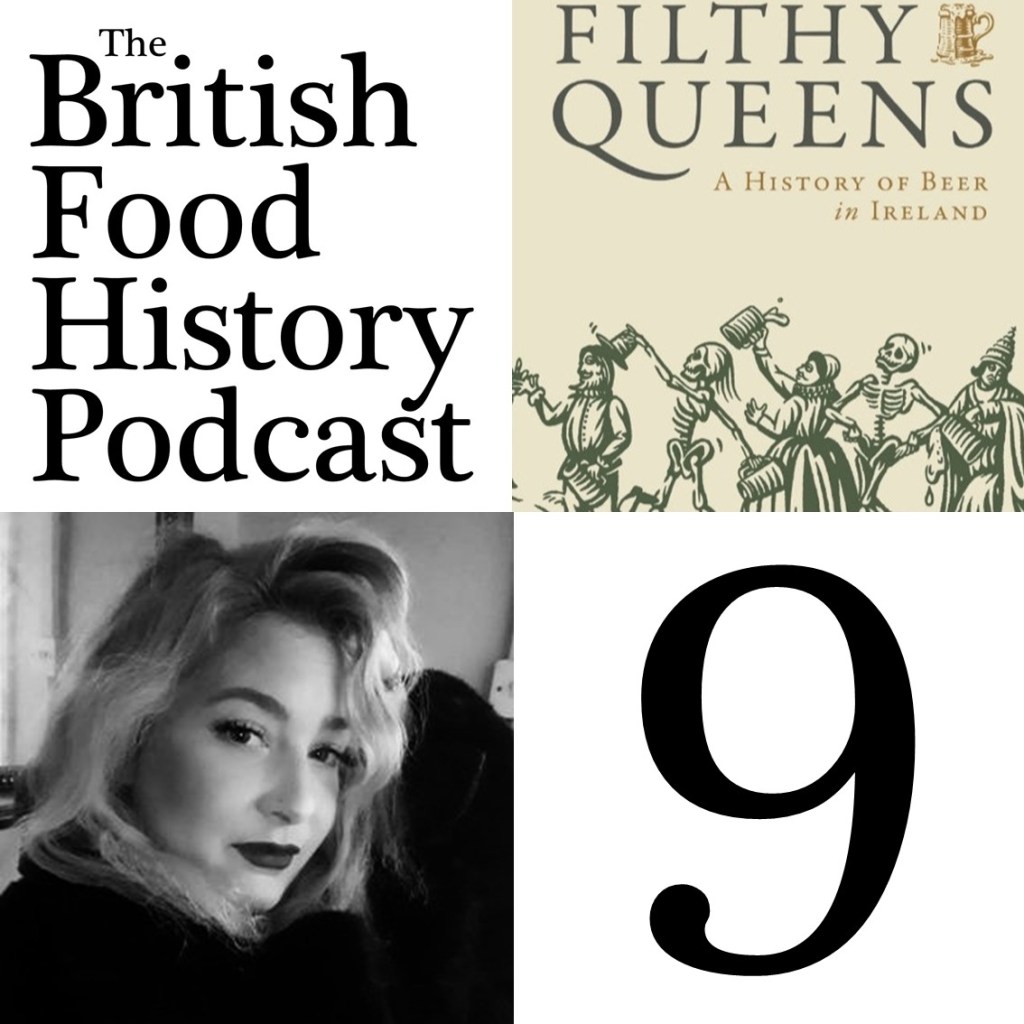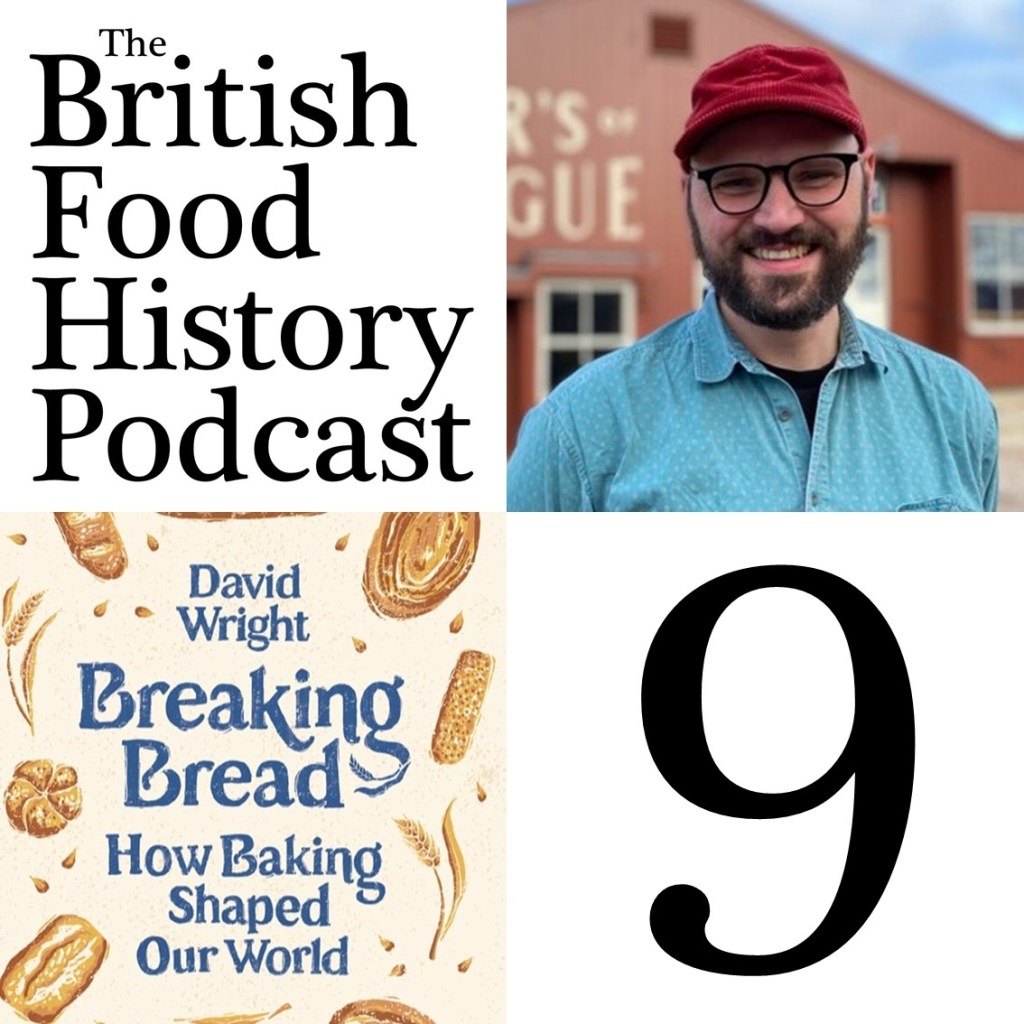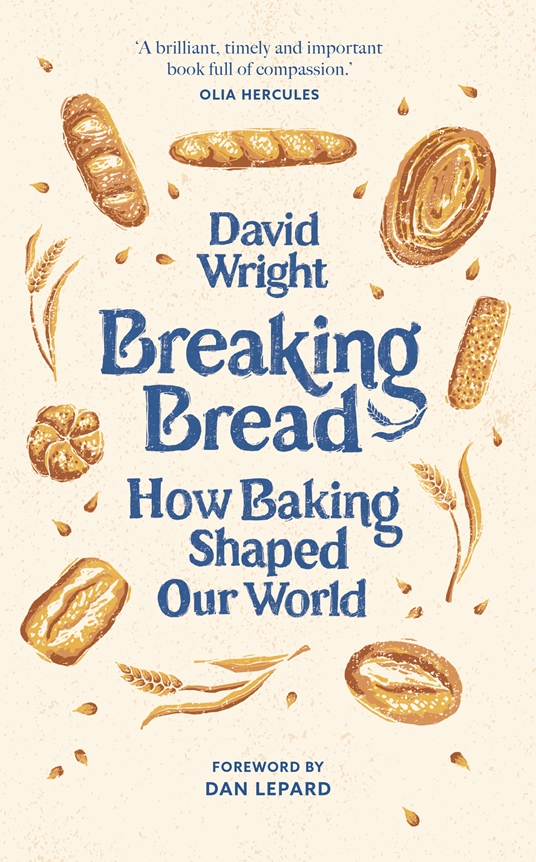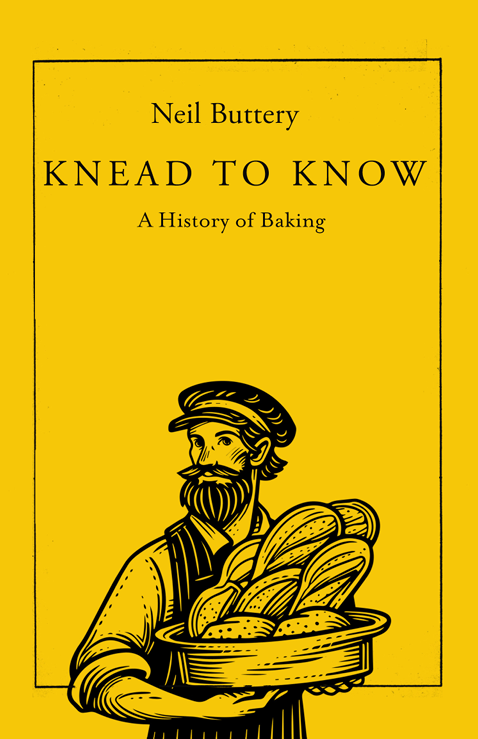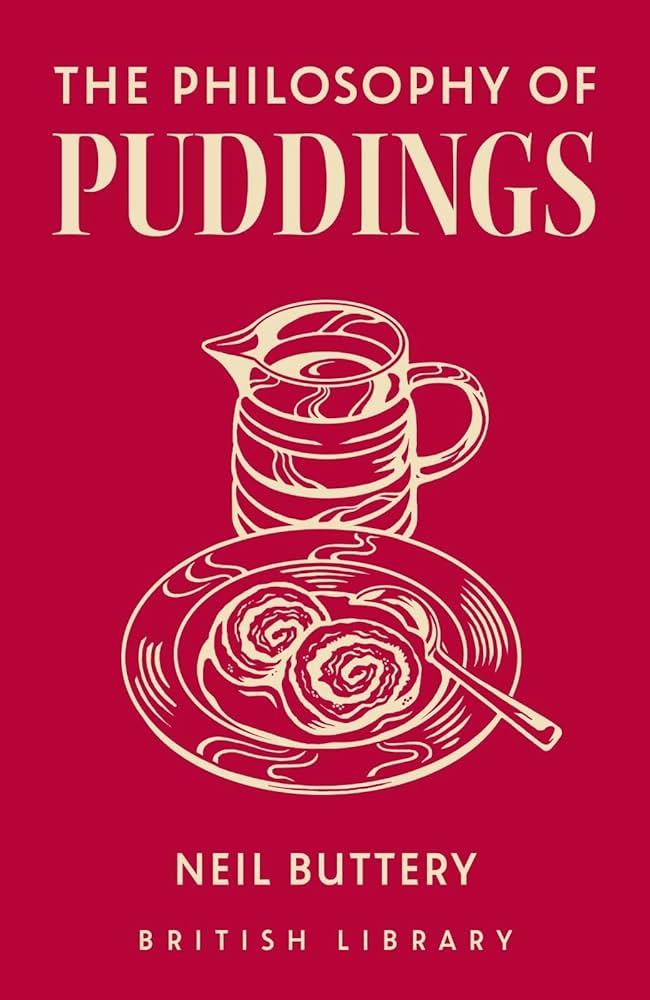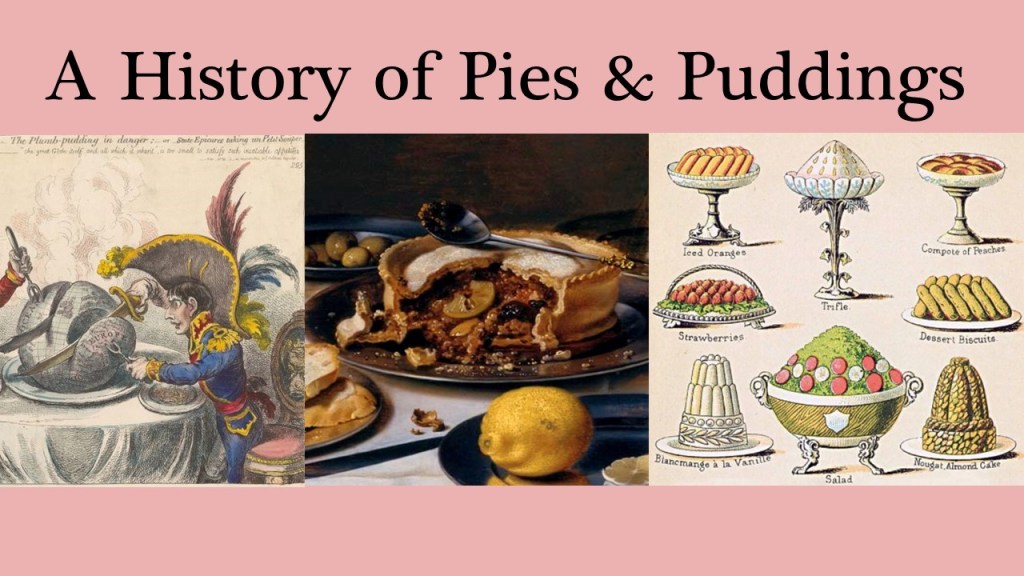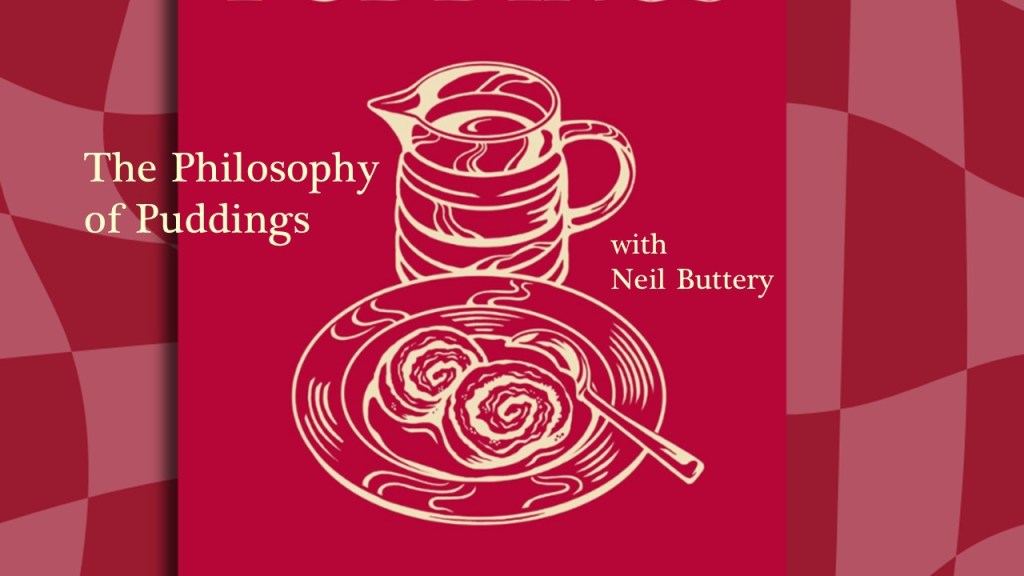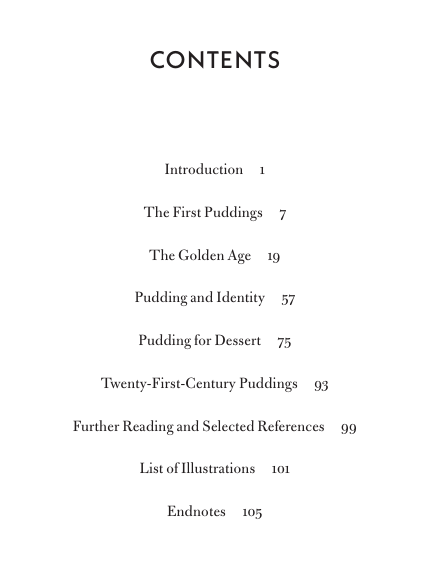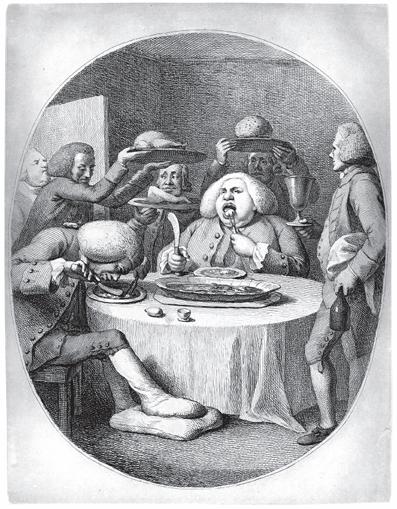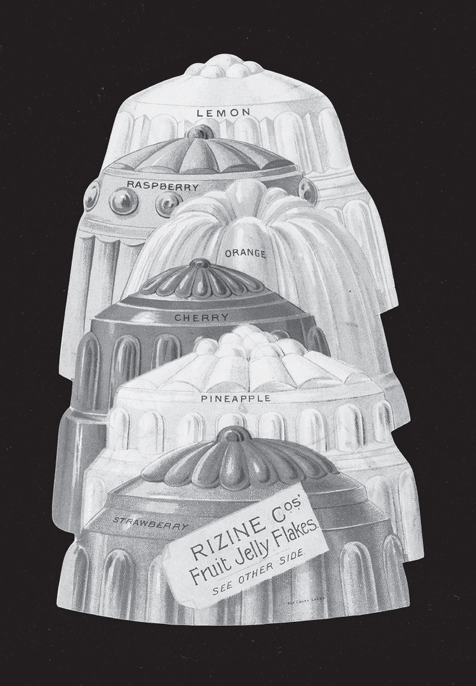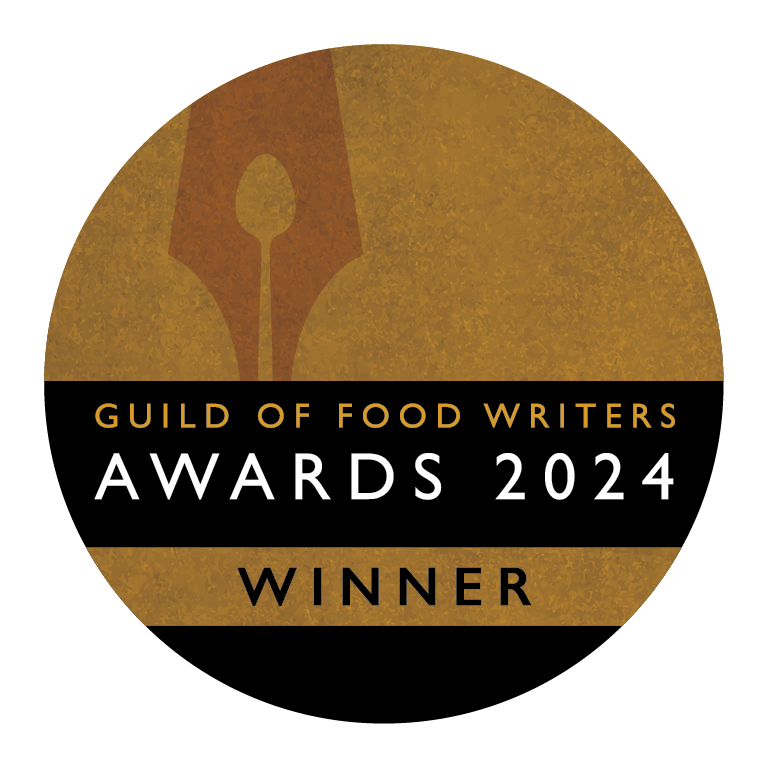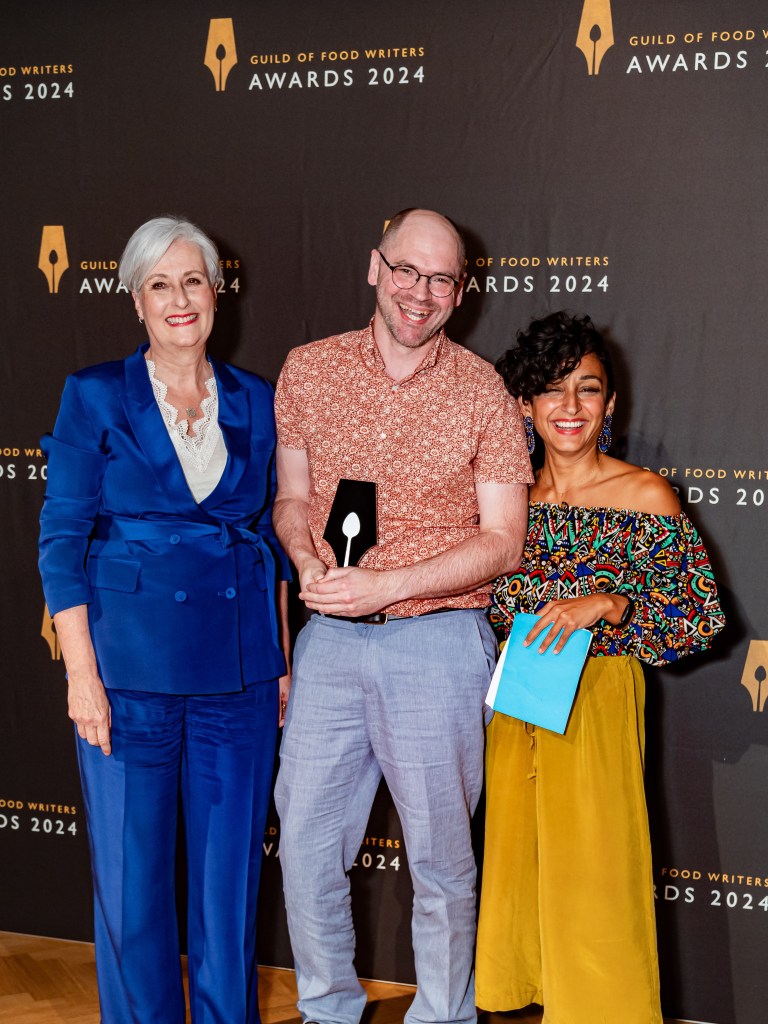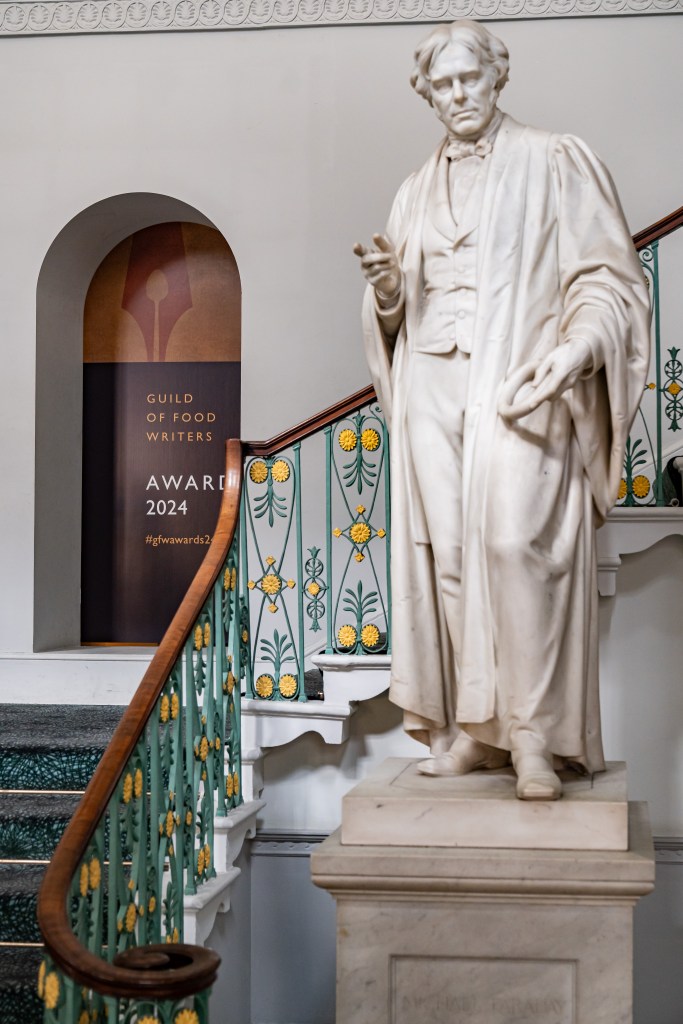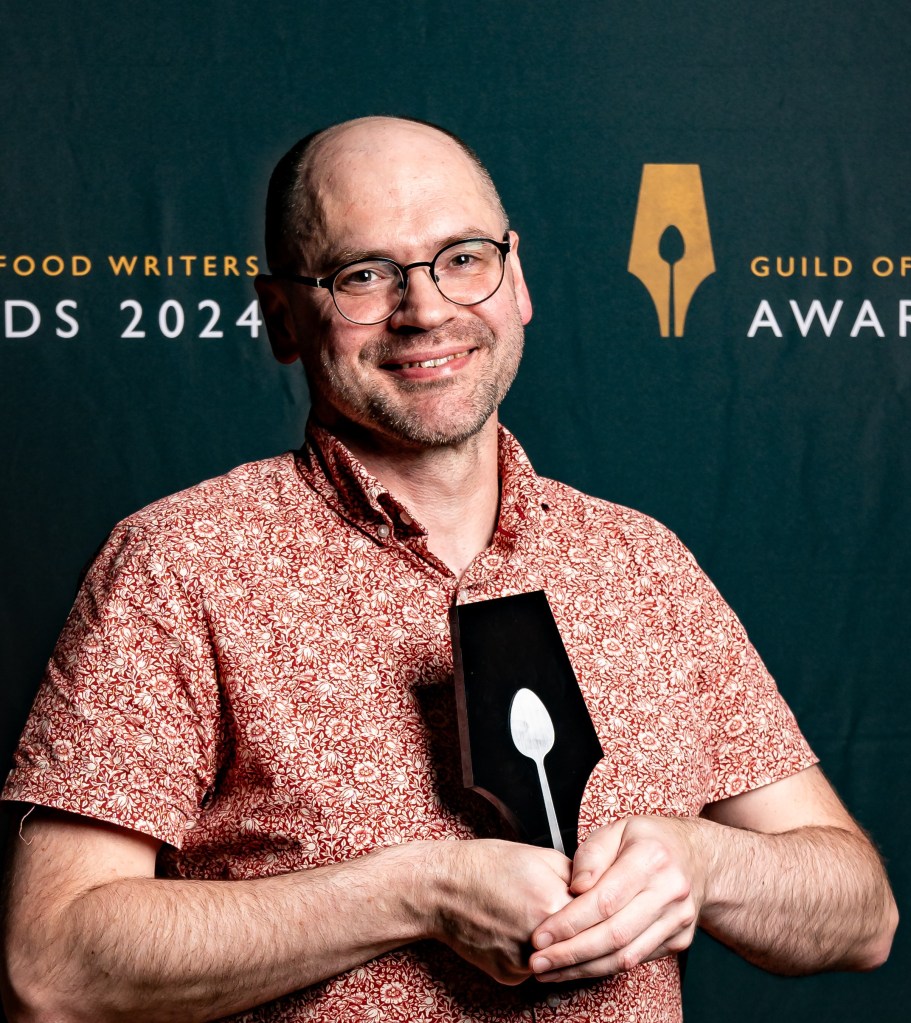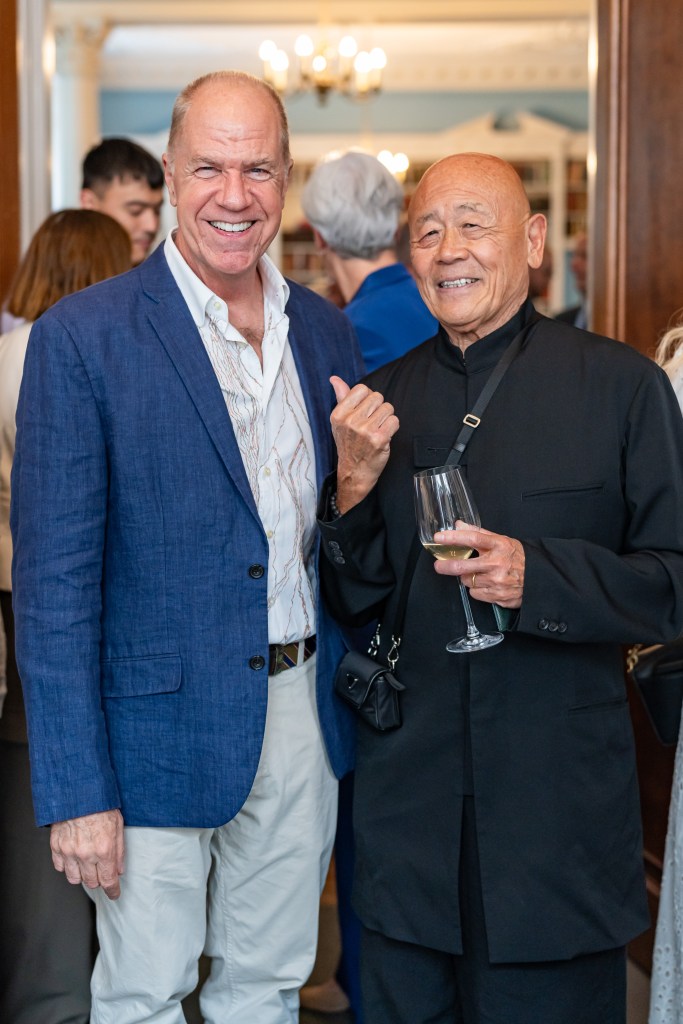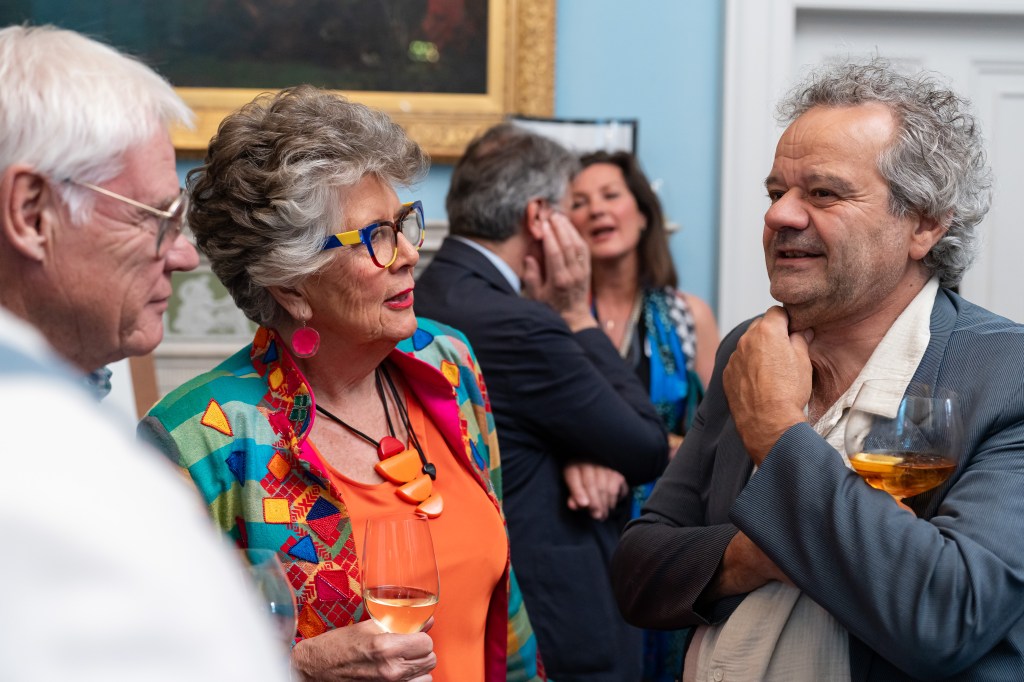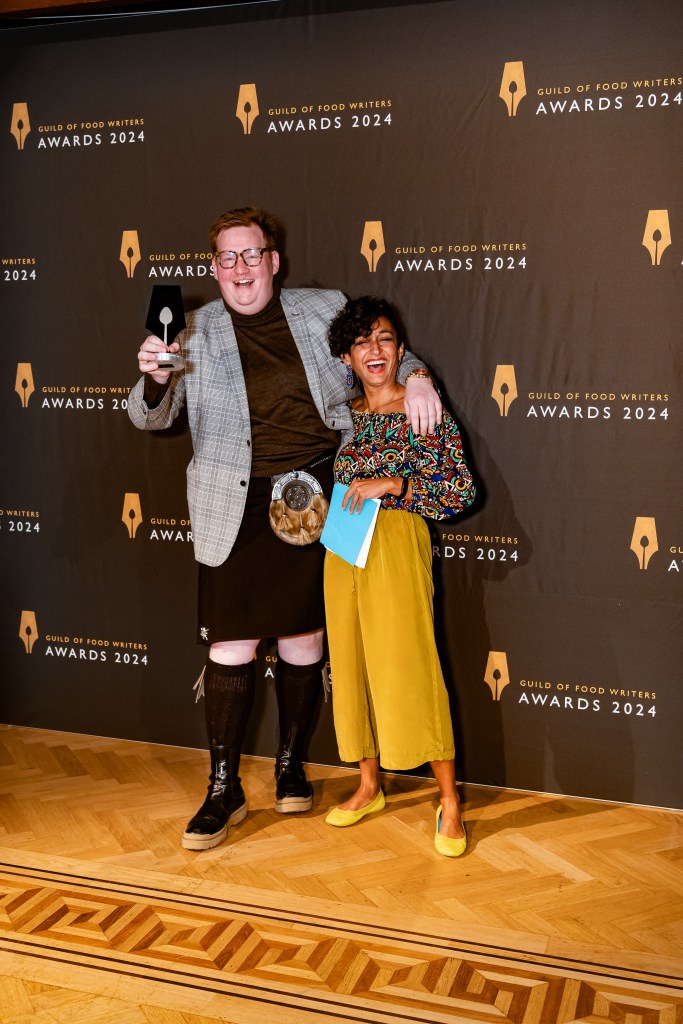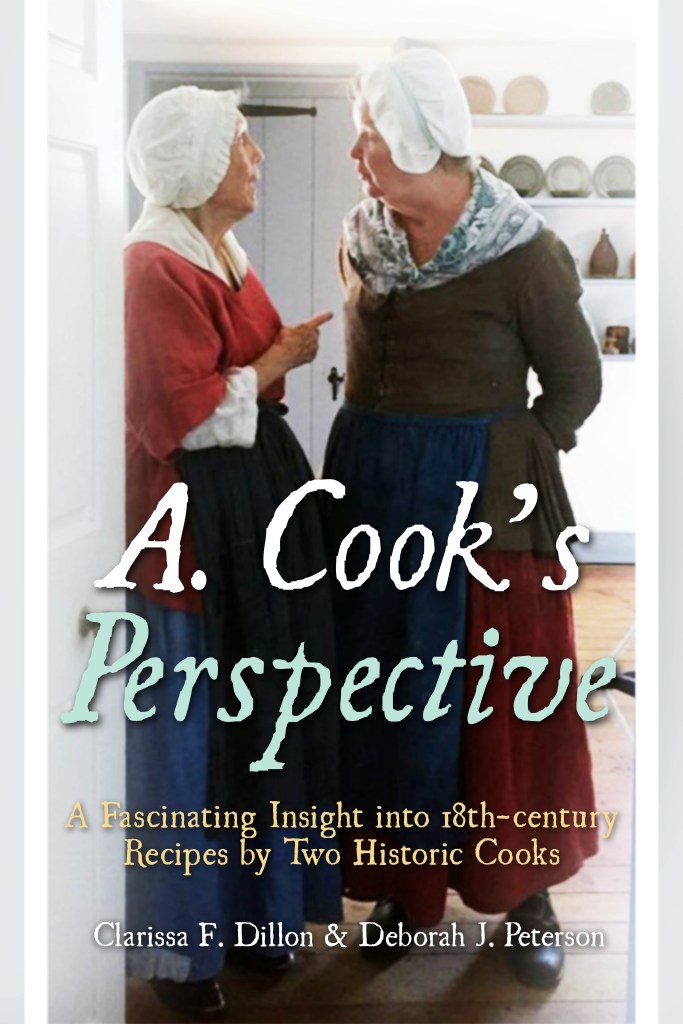My guest on The British Food History Podcast today is food historian and friend of the show Sam Bilton, podcaster and author of Much Ado About Cooking Delicious Shakespearean Feasts for Every Occasion, published by Headline and commissioned by Shakespeare’s Globe.
It was, of course, a great opportunity to talk about the food of Shakespearean England as well as the food and drink references in Shakespeare’s plays, and what they meant to those watching the plays at the time they were first performed.
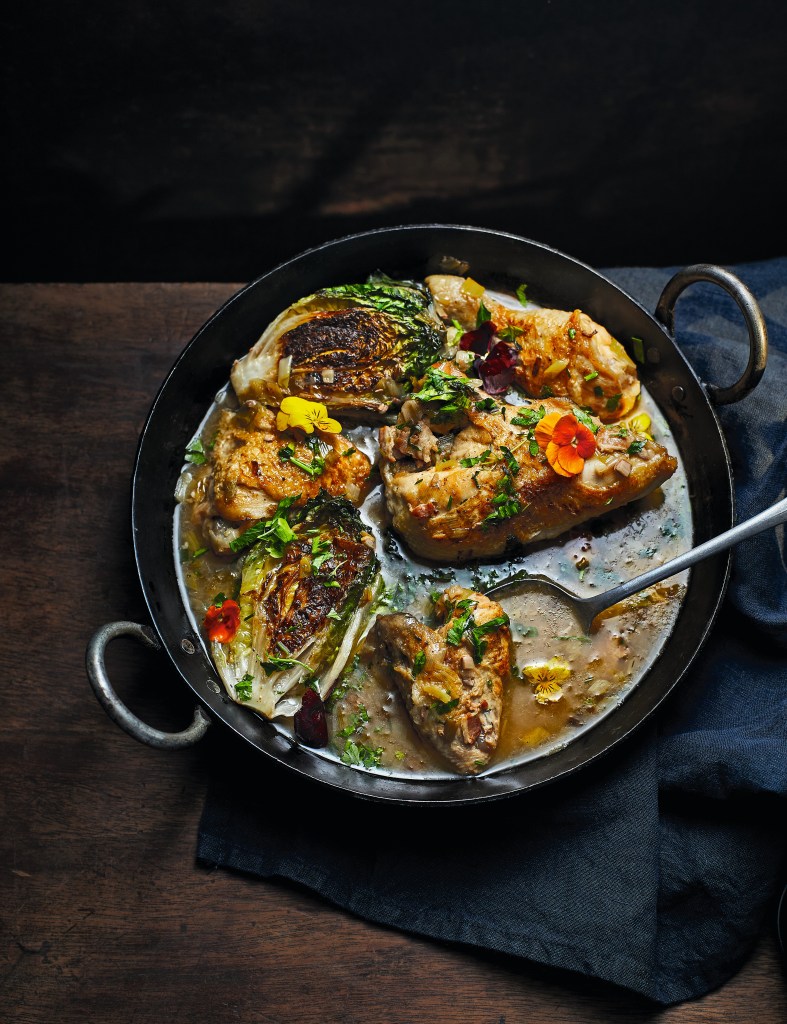
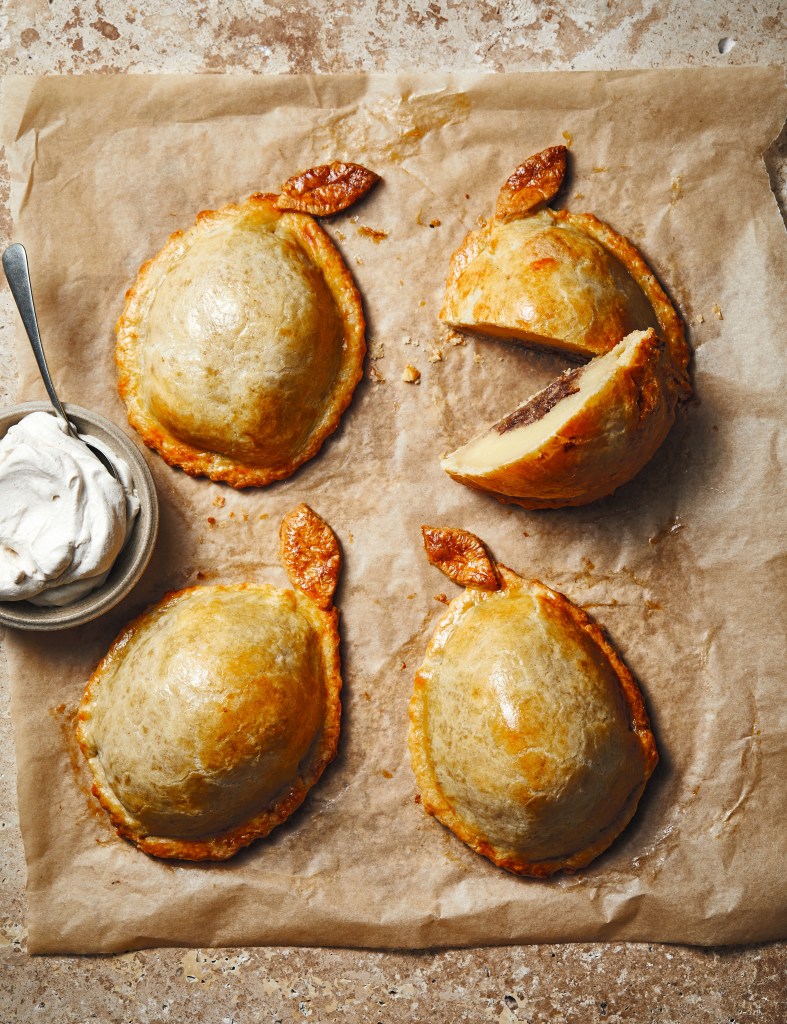
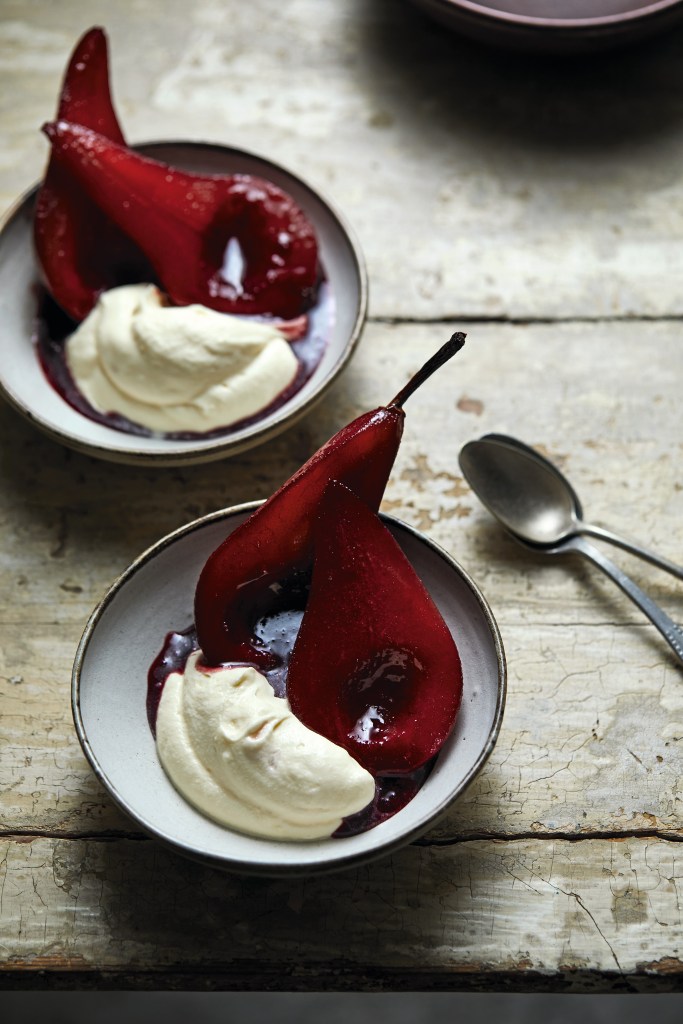
We talked about lots of cookery manuscripts, the importance of keeping historical recipes relevant, capons, Early Modern bread and greedy Falstaff’s sack, amongst many other things.
The British Food History Podcast is available on all apps, or stream it here:
Those listening to the secret podcast can hear about horrible, sweet spinach tarts, Early Modern cakes, possets and more!
Much Ado About Cooking by Sam Bilton
Follow Sam on BlueSky, Insta and Threads @mrssbilton
A is for Apple: An Encyclopaedia of Food & Drink
Remember: Fruit Pig are sponsoring the 9th season of the podcast. Visit their website www.fruitpig.co.uk to learn more about them, their journey, to find your local stockist and access their online shop.
If you can, support the podcast and blogs by becoming a £3 monthly subscriber, and unlock lots of premium content, including bonus blog posts and recipes, access to the easter eggs and the secret podcast, or treat me to a one-off virtual pint or coffee: click here.
This episode was mixed and engineered by Thomas Ntinas of the Delicious Legacy podcast.
Things mentioned in today’s episode
Books discussed or mentioned and further reading
First Catch Your Gingerbread by Sam Bilton
Knead to Know: A History of Baking by Neil Buttery
A Dark History of Sugar by Neil Buttery
English Bread & Yeast Cookery by Elizabeth David
The Good Housewife’s Jewel by Thomas Dawson
The English Housewife by Gervase Markham
The Scot’s Kitchen by F. Marion McNeill
Delightes for ladies by Sir High Platt
Elinor Fettiplace’s Receipt Book by Hilary Spurling
Previous pertinent blog posts
Previous pertinent podcast episodes
A Rare Early Modern Cheese Manuscript with Alex Bamji
A Tudor Christmas with Brigitte Webster
Tudor Cooking & Cuisine with Brigitte Webster
Neil’s other blog and YouTube channel
The British Food History Channel
Neil’s books
Before Mrs Beeton: Elizabeth Raffald, England’s Most Influential Housekeeper
Knead to Know: a History of Baking
Don’t forget, there will be postbag episodes in the future, so if you have any questions or queries about today’s episode, or indeed any episode, or have a question about the history of British food please email me at neil@britishfoodhistory.com, or leave a comment below.

